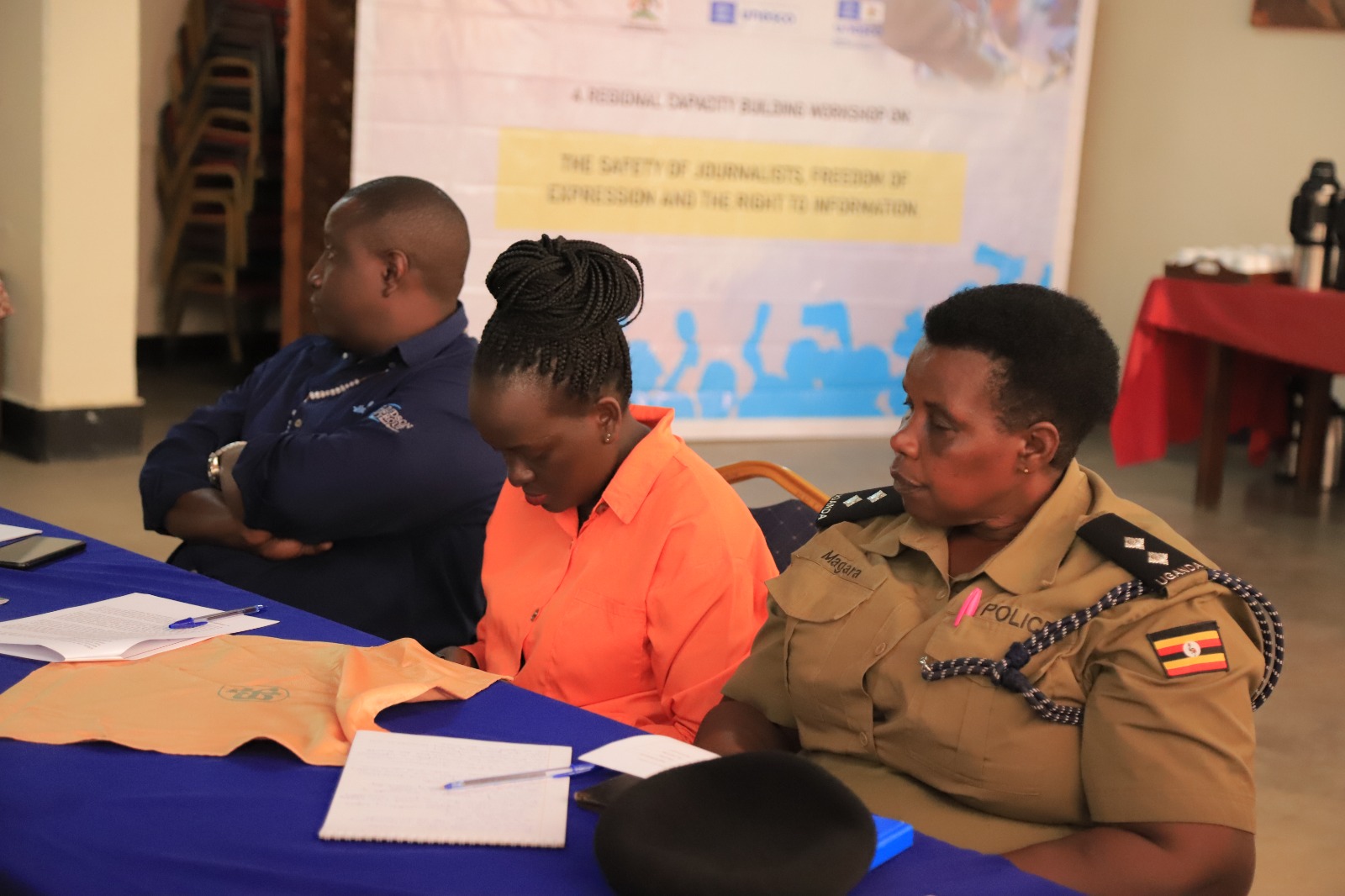The Uganda National Commission for UNESCO (UNATCOM), in partnership with UNESCO has successfully concluded a series of regional training workshops aimed at strengthening the legal and institutional frameworks around media freedom in Uganda. It seeks to build capacity among law enforcement agencies, promote the safety of journalists, and foster an environment where press freedom is protected and respected.
Held under the theme: “Capacity Building and Awareness Creation of Law Enforcement Officers on Safety of Journalists, Freedom of Expression and the Right to Information,” the workshops took place in on the 3rd September in Mbale, 4th September 2025 in Gulu, and the 10th September 2025 in Mbarara. The sessions brought together over 150 participants including senior officers from the Uganda Police Force, Uganda People’s Defence Forces (UPDF), Uganda Prisons Service (UPS), media owners, editors, journalists, religious leaders and local leaders.
The workshops were officially opened by the respective Resident City Commissioners (RCCs), who commended the initiative and called for stronger collaboration between the media and security forces to uphold constitutional freedoms.
“As government, we must recognize the media as an ally in nation-building. Journalists are not enemies of peace, but critical partners in transparency and accountability,” said Mr. Onoria Ambrose, Resident City Commissioner, Gulu City, during the opening ceremony.
While Uganda has witnessed significant growth in its media landscape over the past two decades, threats to media freedom remain a serious concern. Attacks on journalists, especially during election periods, continue to occur with alarming frequency, often with limited accountability.
Speaking at the opening of the training, the Secretary General of UNATCOM emphasized that the workshops are part of a broader national effort to combat impunity for crimes against journalists.
“Today’s engagement is not just a training session; it is a call to action, Freedom of expression does not threaten public order, it supports it. A free press helps to expose corruption, amplify the voices of the marginalized, and hold institutions accountable.” Mr. Daniel Kaweesi representing the Secretary General, UNATCOM
He also noted that despite Uganda’s constitutional guarantees and existing laws protecting media freedom, enforcement remains inconsistent, and impunity for attacks on journalists is “disturbingly high.”
The trainings were designed to help law enforcement officers and media stakeholders understand the legal, ethical, and human rights dimensions of their roles.
The sessions explored:
- The legal framework for press freedom in Uganda and international human rights instruments
- The role of security forces in protecting journalists
- The impact of impunity on democracy and civic engagement
- The upcoming 2026 general elections and the need for objective reporting and safe reporting spaces
The trainings were participatory, featuring presentations, group discussions, and case studies. Special attention was given to journalists’ safety during crisis situations and election periods two areas where media professionals are most vulnerable.
With Uganda’s 2026 general elections approaching, the importance of fostering a safer, more informed, and democratic environment was highlighted across all three regions. Participants from both the media and security sectors agreed on the urgent need for stronger coordination and mutual respect in their roles.
The initiative also aligns with SDG 16.10, which promotes public access to information and the protection of fundamental freedoms, and supports UNESCO’s global efforts to end impunity for crimes against journalists.
An action plan and implementation strategy are being developed to ensure sustained engagement beyond the training period. This includes future collaborations with judicial officers, media house owners, and law enforcement command structures.
The Secretary General concluded his remarks with a strong message of unity
“Let us challenge assumptions, share experiences, and commit to the hard but necessary work of promoting freedom of expression, ending impunity, and ensuring the safety of all those who work to keep our society informed.”

